︎

Holger Görg
Kiel Institute for the World Economy, Kiel Centre for Globalization
Holger Görg is Professor of International Economics at the University of Kiel, Head of the Research Center “International Trade and Investment” at the Kiel Institute for the World Economy (IfW), and Director of the Kiel Centre for Globalization (KCG). He is also affiliated with the Tuborg Centre for Globalisation and Firms at Aarhus University, GEP at Nottingham University and IZA. Before joining Kiel in 2008 he was on the staff at the University of Nottingham, the University of Ulster at Jordanstown and University College Cork. He completed a Ph.D. in Economics at Trinity College Dublin. His research interests are in empirical international trade and industrial organisation focusing in particular on the activities of multinational companies, foreign direct investment, and international outsourcing. Holger Görg has also worked as Consultant for, among others, The World Bank, European Commission, UNIDO, UN Economic Commissions for Europe and Africa, and various governments.
MORE ABOUT HOLGER GöRG >Mar 15, 2024
Holger Görg, Anna JAcobs, Saskia Meuchelböck
Who is to suffer? Quantifying the impact of sanctions on German firms
In this paper, we use a novel firm level dataset for Germany to investigate the effect of sanctions on export behaviour and performance of German firms. More specifically, we study the sanctions imposed by the EU against Russia in 2014 in response to the annexation of Crimea and Russia's counte...
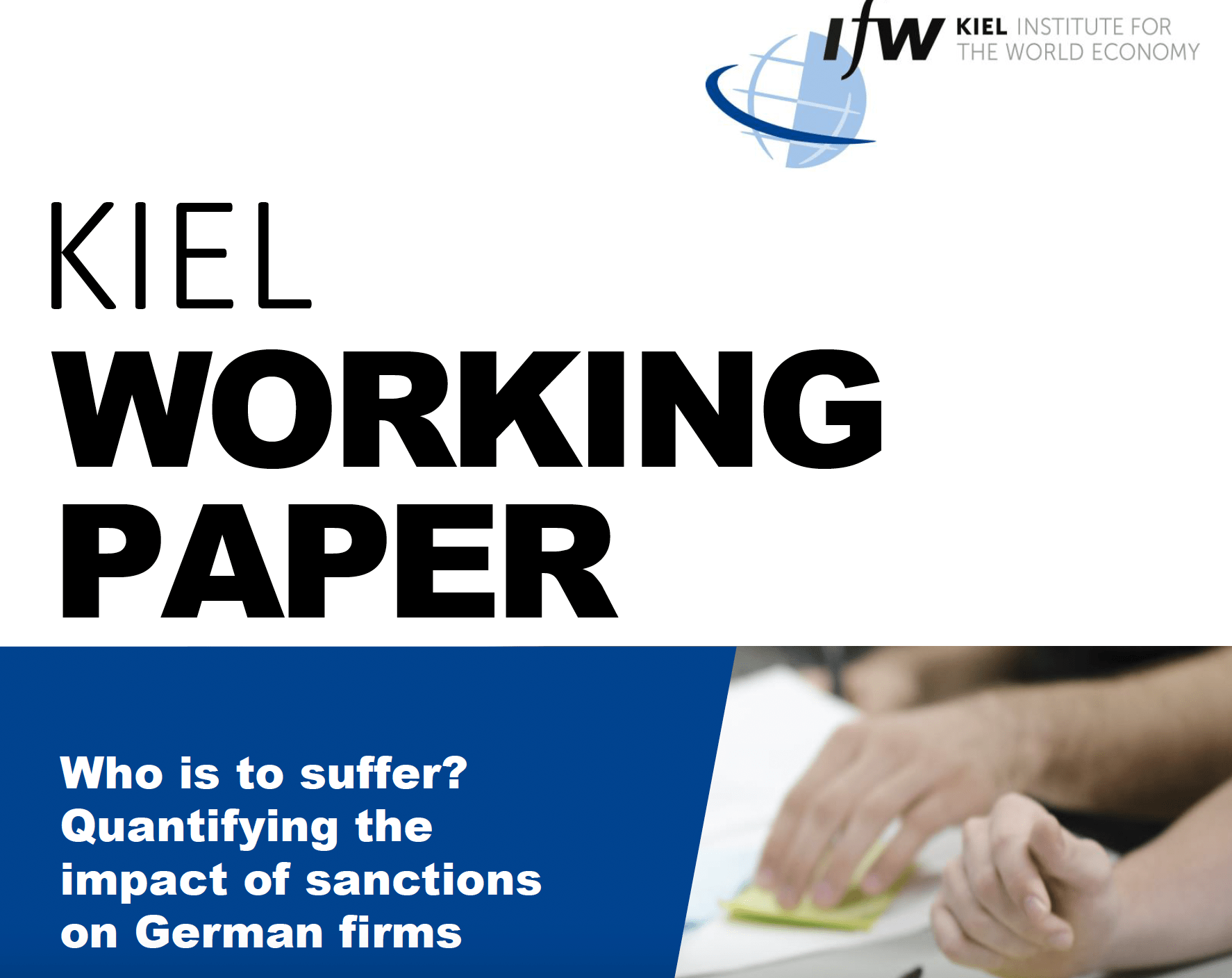
Mar 7, 2024
Haiou Mao, Holger Görg, Guopei Fang
Time to say goodbye? The impact of environmental regulation on foreign divestment
We look at divestments by foreign firms – a topic that has received comparatively little attention in the literature – and investigate how changes in the regulatory environment in the host country may impact on such divestment decisions. We use the implementation of China’s Two Control Zone (T...
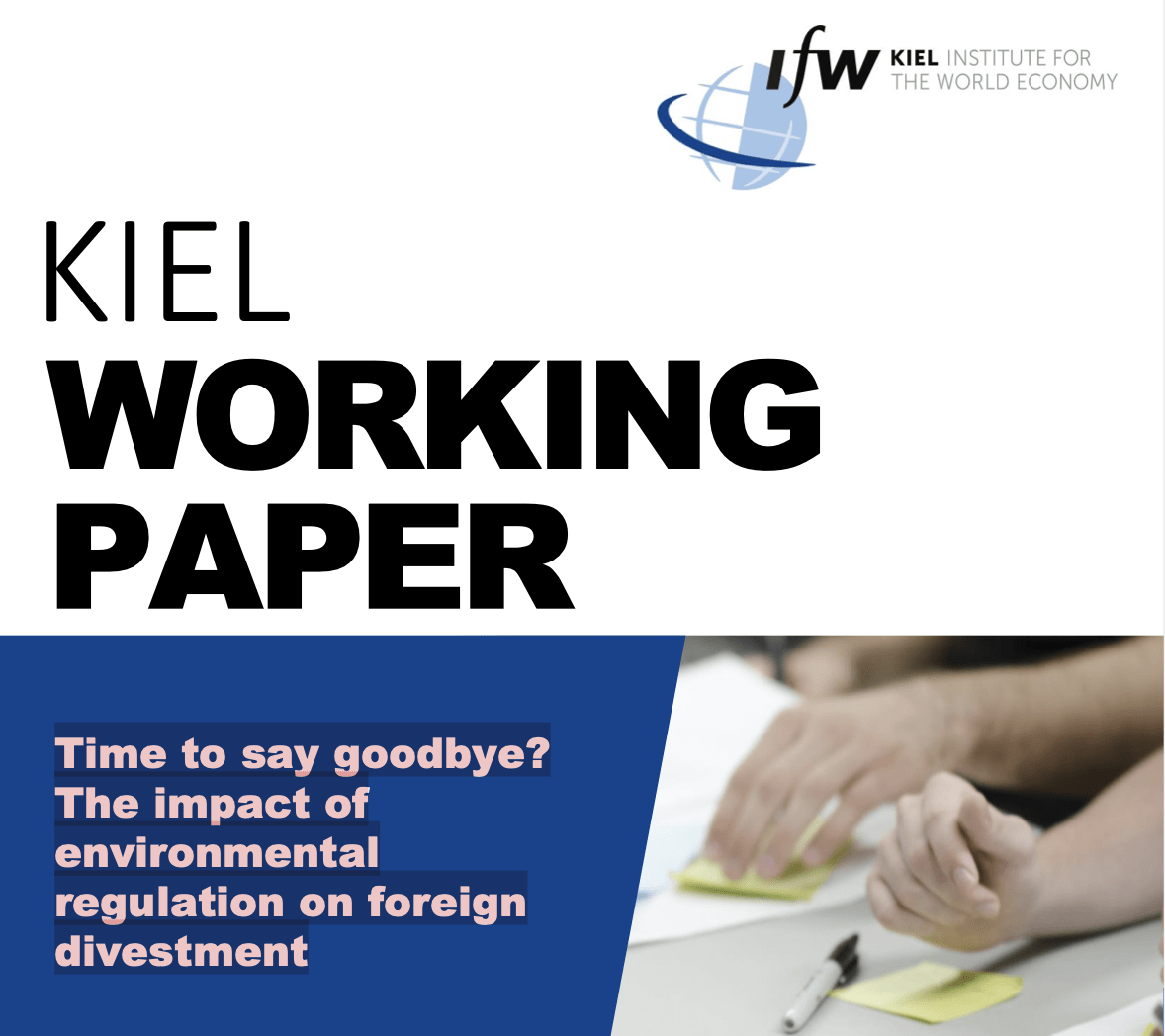

Sep 16, 2021
Holger Görg, Jann Lay, Stefan Pahl, Adnan Seric, Frauke Steglich, Liubov Yaroshenko
Multilateral coordination and exchange for sustainable global value chains
While participation in global value chains (GVCs) is widely associated with benefits for countries’ development and growth, its environmental and social costs become increasingly evident. Representing core buyer and supplier countries in GVCs, the G20 is particularly suited to tackle this global c...
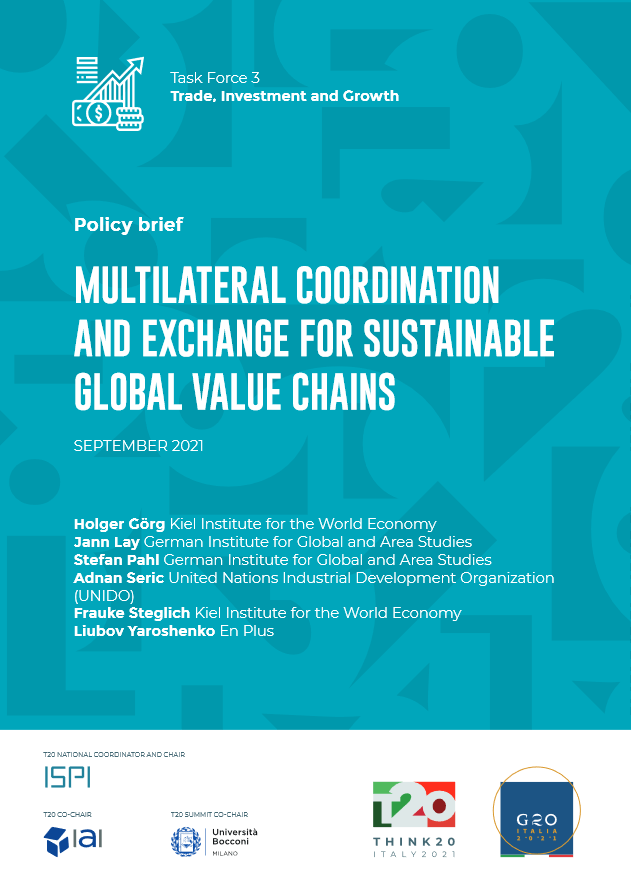
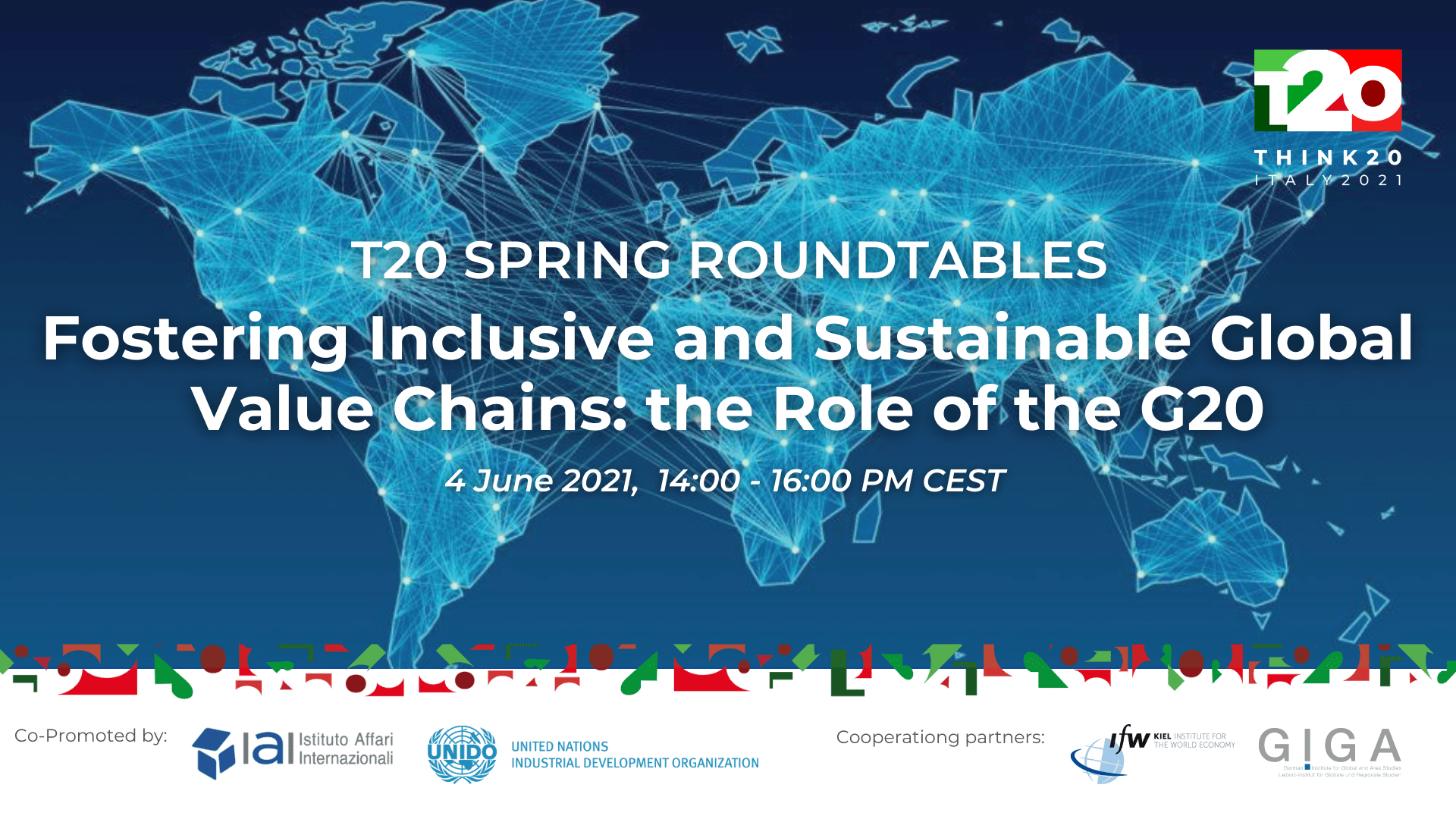
Jan 1, 2020
Haiou Mao, Holger Görg
Friends like this: The impact of the US–China trade war on global value chains
This paper considers the indirect impact the recent tariff increases between the United States and China can have on third countries through links in global supply chains. We combine data from input–output relationships, imports and tariffs, to calculate the impact of the tariff increases by both ...

Jan 1, 2020
Adnan Seric, Holger Görg, Wan-Hsin Liu and Michael Windisch
Risk, resilience and recalibration in global value chains
Current global value chains are highly efficient, specialized and interconnected, but also highly vulnerable to global risks. The COVID-19 pandemic has been a stark demonstration of this point, causing supply-side disruptions in the first quarter of 2020, as China and other Asian economies were hit ...

Jan 1, 2019
Sourafel Girma, Holger Görg, Erasmus Kersting
Which boats are lifted by a foreign tide? Direct and indirect wage effects of foreign ownership
The attraction of foreign direct investment (FDI) is considered to be of particular importance for emerging economies because it represents a channel through which international convergence in standards of living may be achieved. One important effect of FDI is its impact on wages, both within the ta...

Jan 1, 2018
Holger Görg, Aoife Hanley, Adnan Seric
Corporate Social Responsibility in Global Supply Chains: Deeds Not Words
The disconnect between the lofty aspirations of firms claiming Corporate Social Responsibility (CSR) and their shortcomings in practice have caused some observers to question its usefulness. The fallout from events like the Rana Plaza catastrophe has highlighted some of these shortcomings—namely, ...
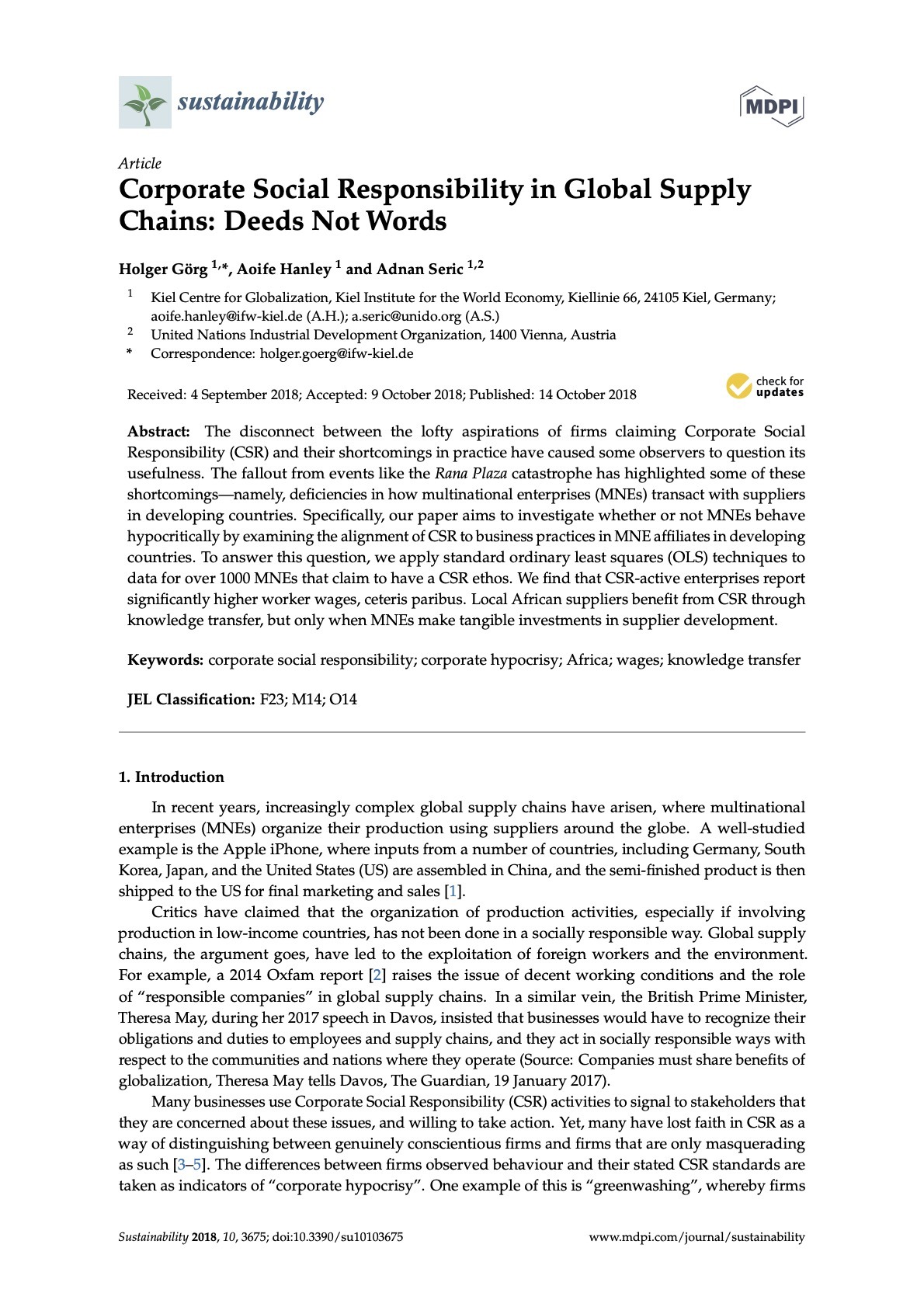
Jan 1, 2017
Holger Görg, Erasmus Kersting
Vertical integration and supplier finance
This paper studies access to finance by suppliers that are linked to a multinational enterprise. The theoretical framework consists of a property rights model featuring suppliers that are either vertically integrated or sell to the multinational at arm's length, which in turn affects the availa...

